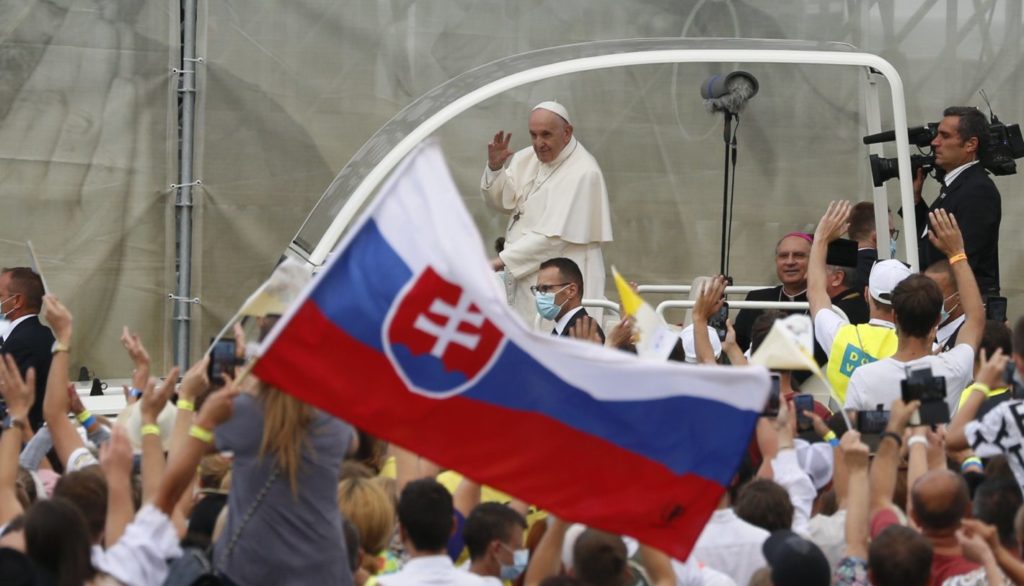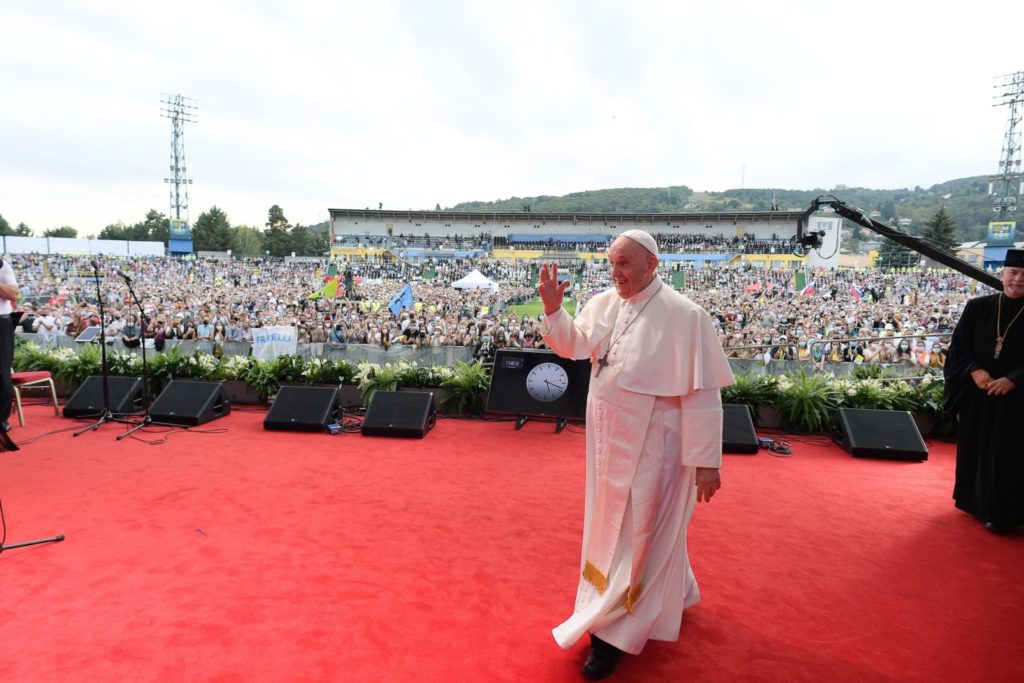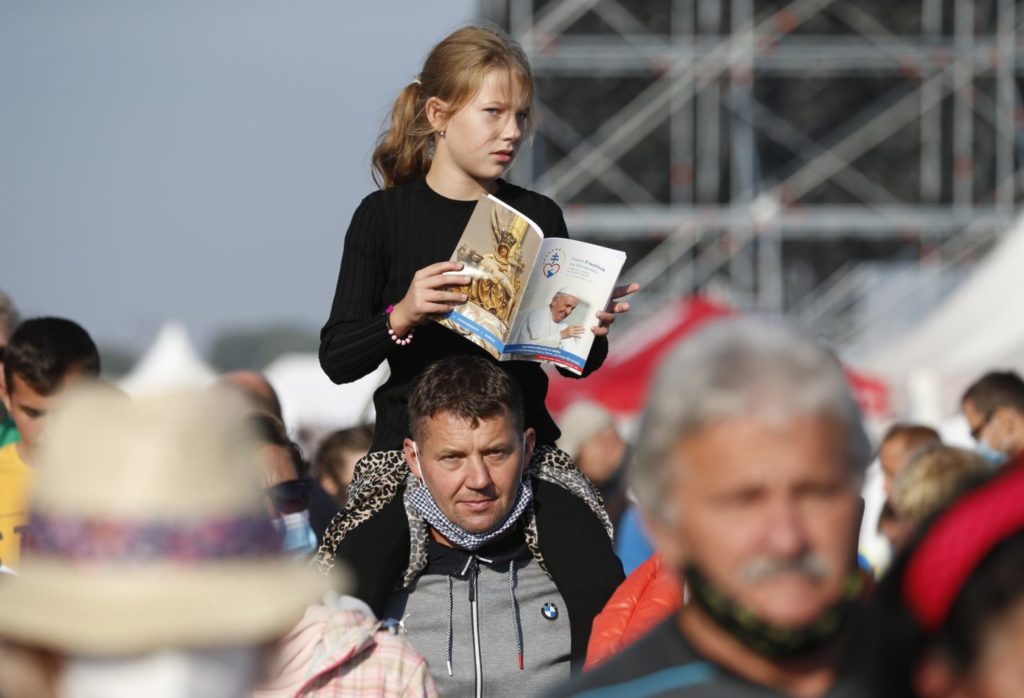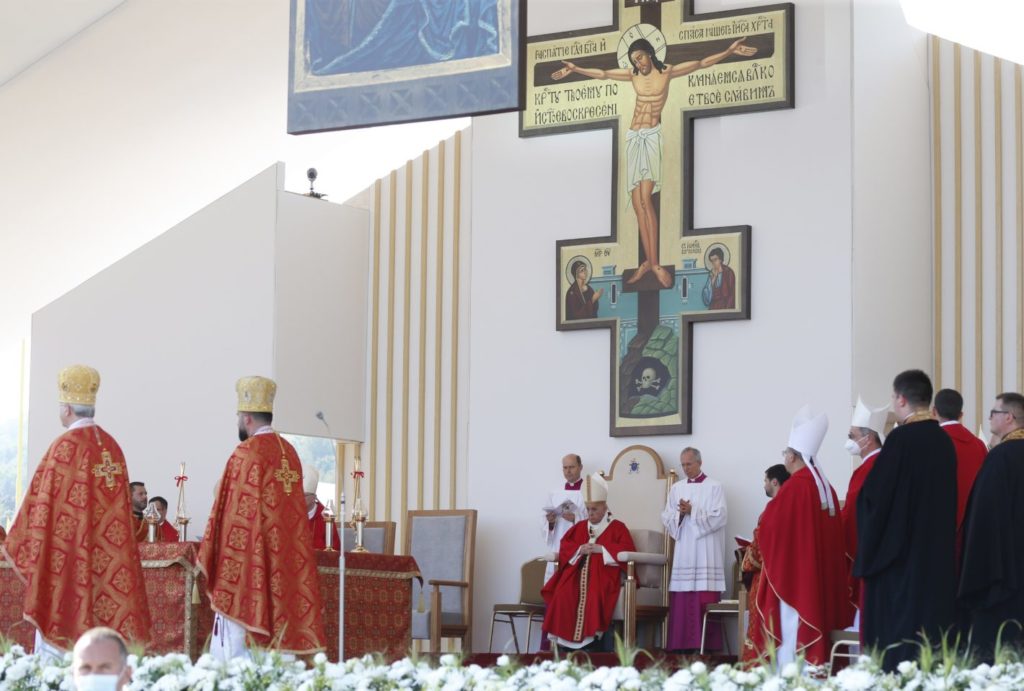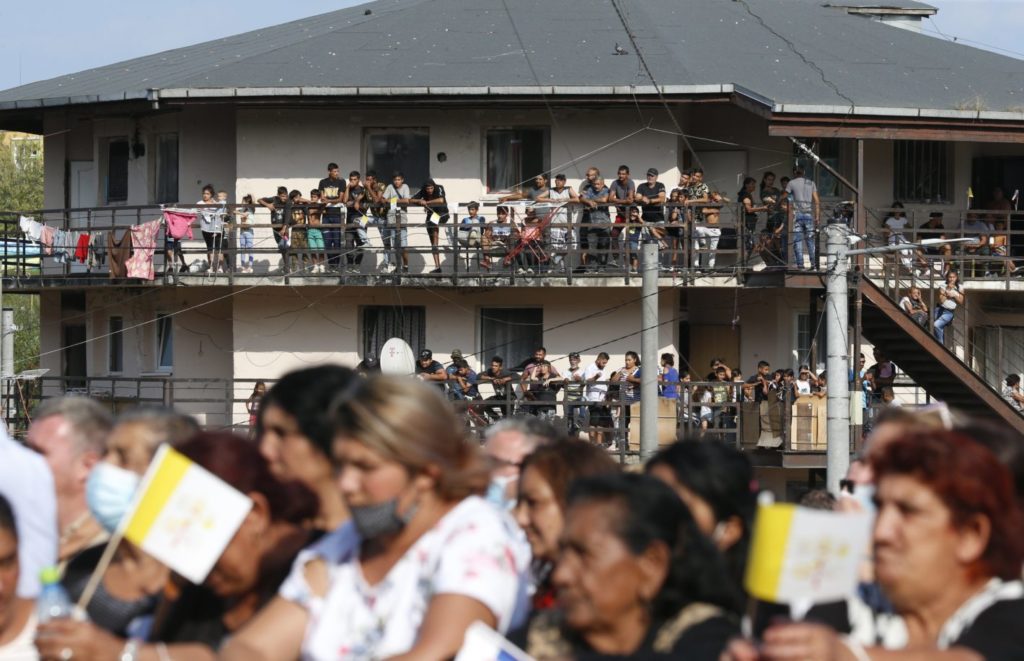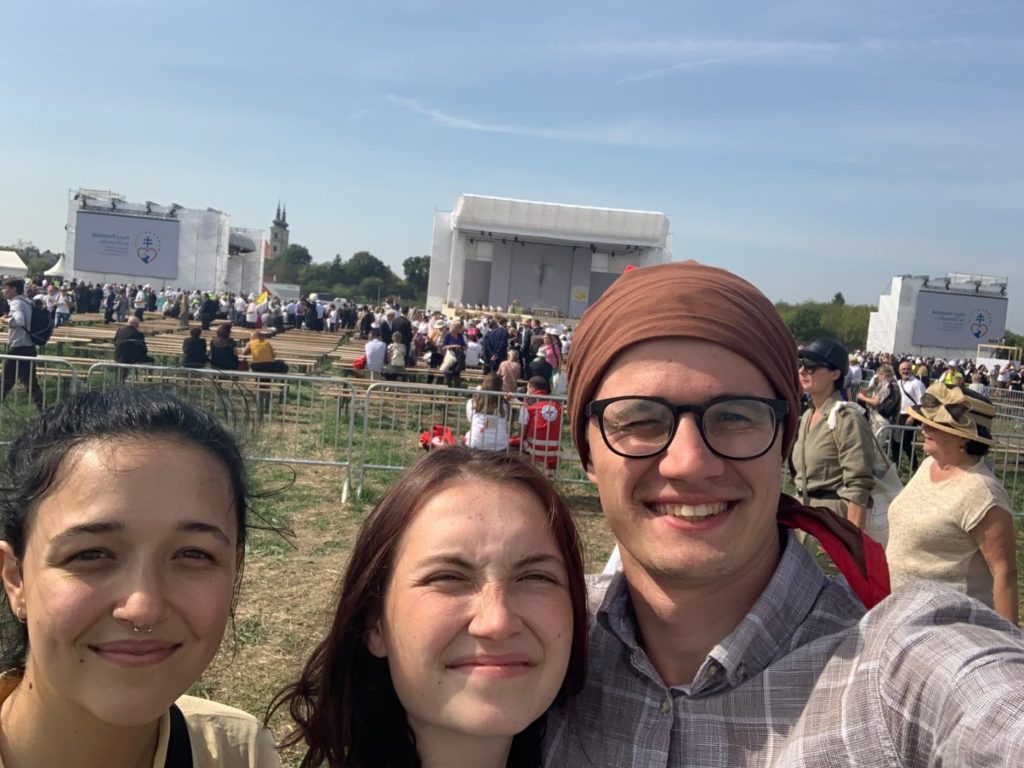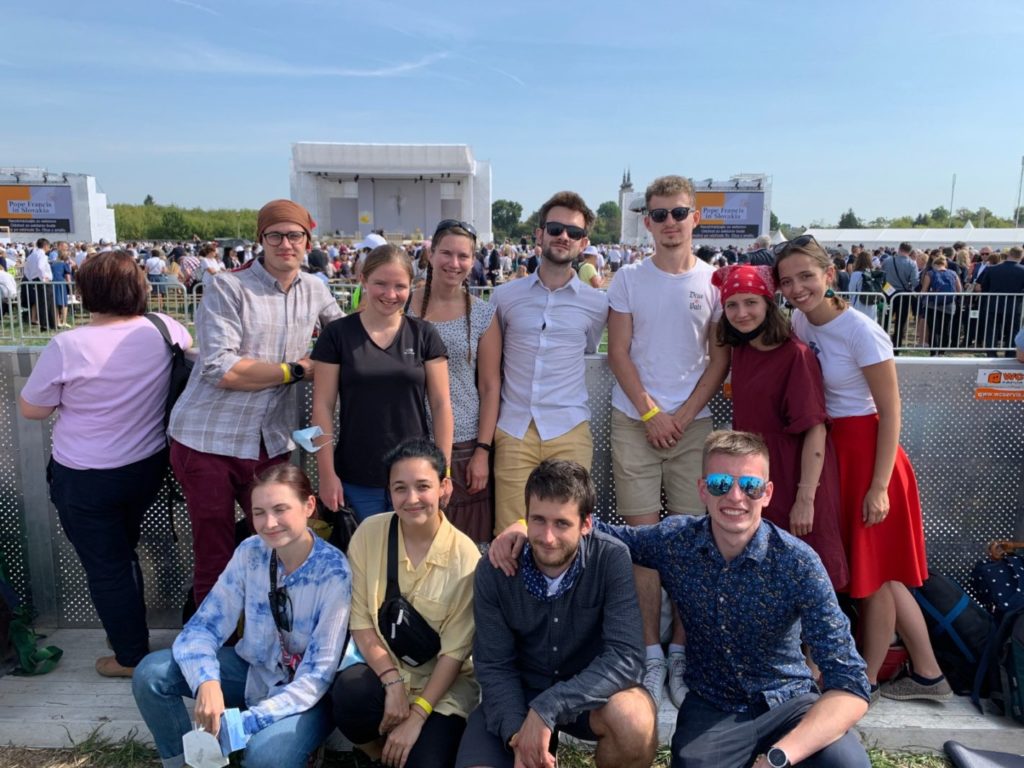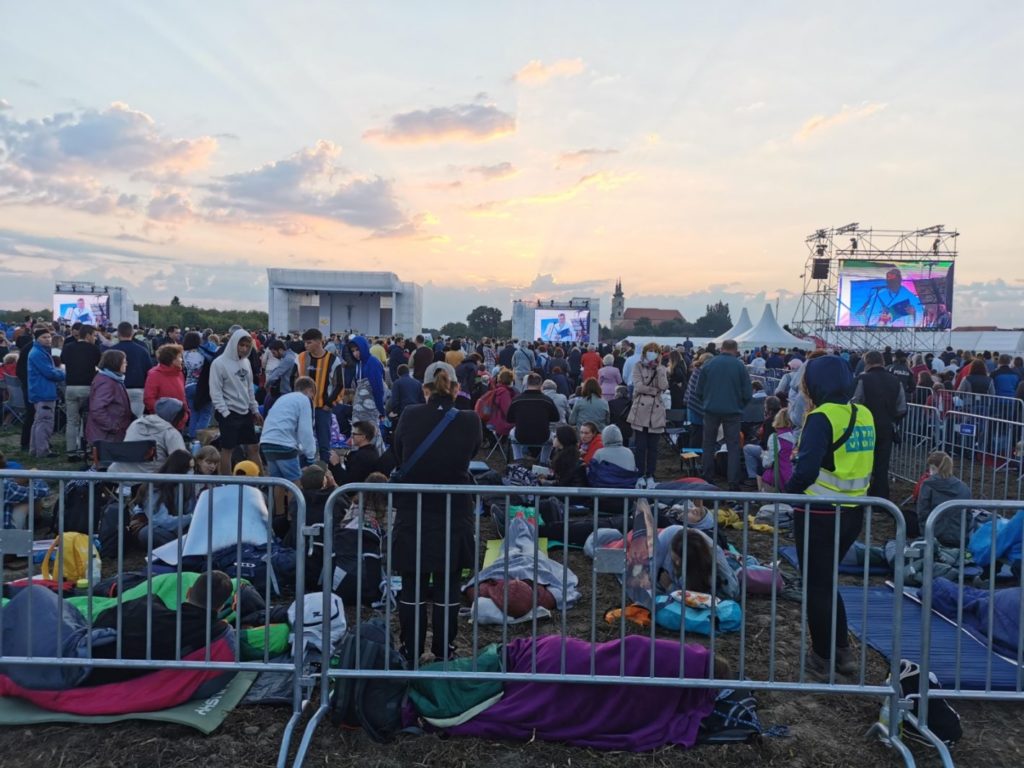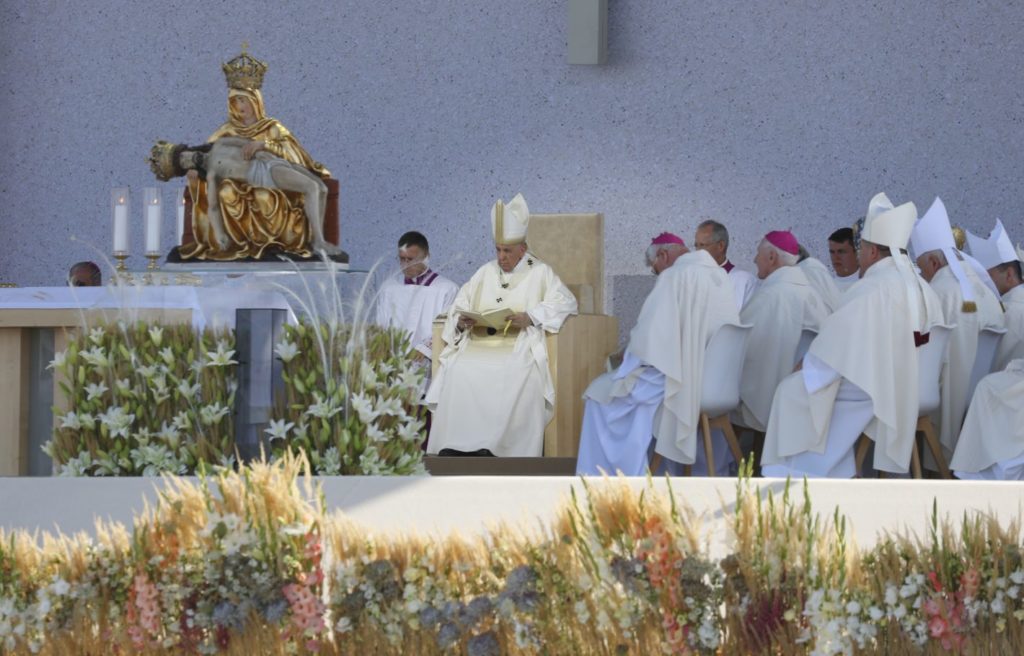The preparations for Pope Francis' apostolic trip to Slovakia were marked by the issue of health security. Initially, only people with the double vaccination schedule completed would be allowed to attend the events. These indications in a country where only slightly more than 40 % of the population has been vaccinated caused great discouragement. On September 4, the Bishops' Conference, after negotiating with the government, announced a change in the restrictions, opening the possibility of registering for the meetings to people with a negative PCR test or people who have passed the virus. Despite this initial difficulty, many did not back down. Mária, a young lawyer from Bratislava, commented: "I came to the meeting with the Pope in Šaštín with people from my parish. I wanted to come, because it is a unique opportunity to be with Christ's representative on earth. I said to myself: 'If the Pope wanted to be with us, I surely want to meet him too'".
A hidden treasure in the heart of Europe
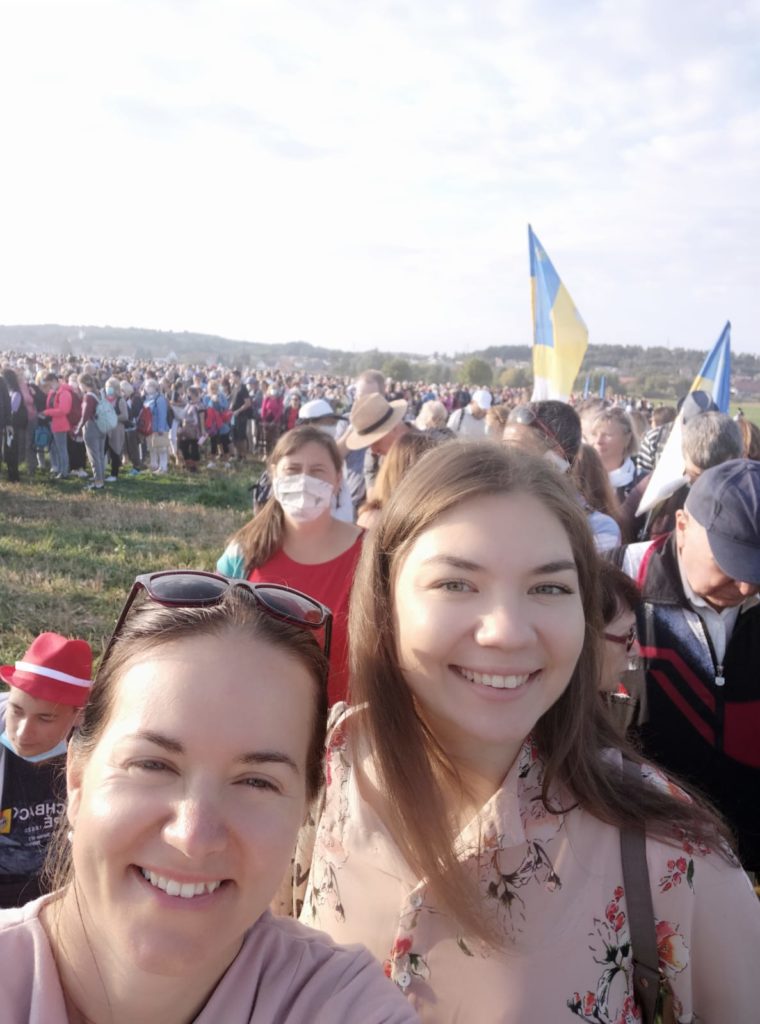
For many, Slovakia is another Eastern European country; however, Slovaks feel totally Central European. In this sense, the Pope won everyone over when he spoke of "a message of peace in the heart of Europe". It is remarkable that the change from the communist to the democratic system in 1989 was so peaceful that it earned the name "velvet revolution". Also the division of Czechoslovakia into the Czech Republic and Slovakia on January 1, 1993 was an example of a political process that attracted the admiration of the international community. Vladimír, a young industrial engineer from Bratislava, says: "I was struck by the fact that the Pope commented on how peaceful the Slovaks are and the fact that the Slovaks can contribute a lot to fraternity among peoples also thanks to their geographical position, being in the center of the continent". The Pope also played a mediating role, celebrating the Catholic liturgy of the Greek rite. Slovakia is not only the country whose eastern border marks the borders of the European Union, but also marks in some way the borders of Catholicism. The majority of Christians in the countries to the east of Slovakia confess the Orthodox religion.
Kindness and contradiction
However, although the Pope appreciates the kindness and serenity of the Slovaks, it needs to be complemented with some character. The Pontiff said in his homily in Šaštín: "Let us not forget this: faith cannot be reduced to sugar that sweetens life. It cannot. Jesus is a sign of contradiction. [...] In the face of Jesus we cannot remain lukewarm, we cannot remain indifferent. [It is not a matter of being hostile to the world, but of being "signs of contradiction" in the world. Christians who know how to show, by their lives, the beauty of the Gospel. Christians who are weavers of dialogue where positions become rigid; who make fraternal life shine where society is often divided and hostile; who spread the good fragrance of welcome and solidarity where personal selfishness and collective egoism often prevail; who protect and preserve life where the logic of death reigns".
The true center of the Church
The Pope, using the image of the Bratislava castle that towers over the capital of Slovakia, invited in his meeting with priests and religious to promote a Church that is not self-referential. According to the Pontiff, "the Church is not a fortress, [...] a castle perched on high that looks at the world with distance and sufficiency. [...] A humble Church that does not separate herself from the world and does not look at life with detachment, but dwells in it, is beautiful. Living within, let us not forget: sharing, walking together, welcoming people's questions and expectations. [When the Church looks at herself, she ends up like the woman in the Gospel: bent over, navel-gazing (cf. Lk 13:10-13). The center of the Church is not herself. Let us move away from excessive concern for ourselves, for our structures, for how society looks at us".
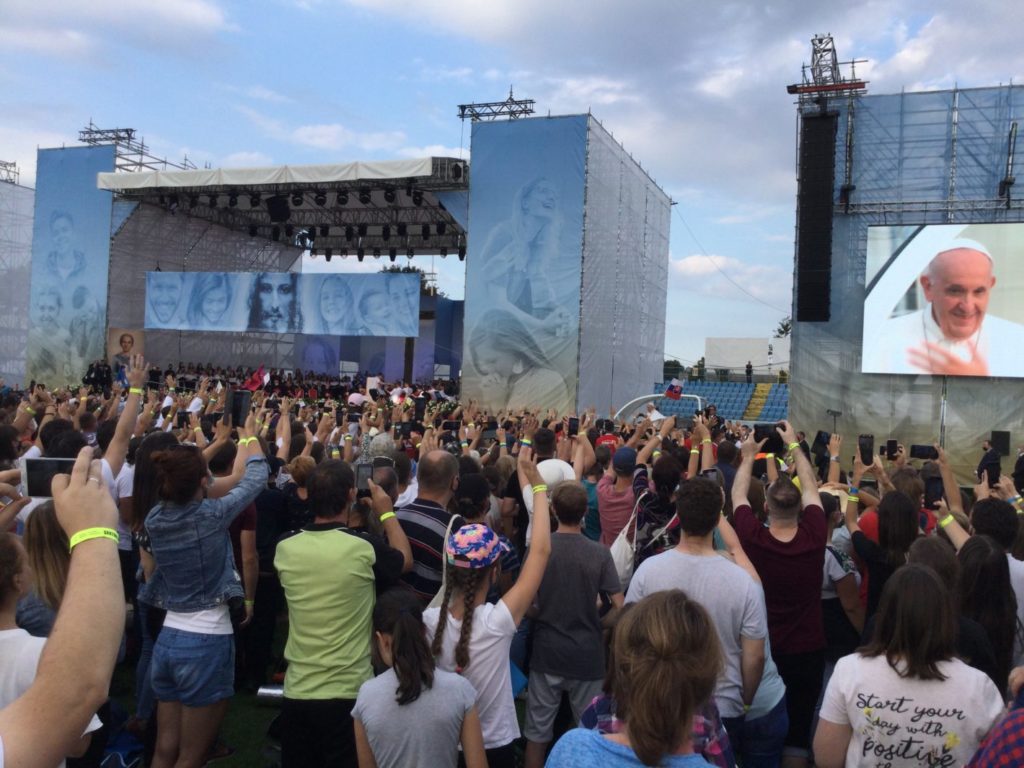
Training in freedom. A risk. A challenge.
Pope Francis at the same meeting also raised the issue of formation in freedom. According to the Holy Father, people who lived for decades under the Communist yoke cannot be expected to learn to use freedom overnight. However, this is not an excuse to think that "it is better to have everything predefined, laws to comply with, security and uniformity, than to be responsible and adult Christians, who think, question their consciences, allow themselves to be questioned. It is the beginning of casuistry, everything regulated... [...] Dear friends," the Pope said, "do not be afraid to form people to a mature and free relationship with God. [...] Perhaps this gives us the impression of not being able to control everything, of losing strength and authority; but the Church of Christ does not want to dominate consciences and occupy spaces, she wants to be a "source" of hope in people's lives. It is a risk. It is a challenge.
Life's greatest dream
The Pope met in Košice not only with the Roma community of Luník IX, but also with young people. The Pope did not hesitate to address a very topical issue. To invite young people to live cleanly the stage of courtship, the Pope said: "Love is the greatest dream of life, but it is not a cheap dream. It is beautiful, but it is not easy, like all the great things in life. [New eyes are needed, eyes that are not deceived by appearances. Friends, let us not trivialize love, because love is not only emotion and feeling, if this is even the beginning. Love does not consist in having everything at once, it does not respond to the logic of the disposable. Love is fidelity, gift, responsibility. The true originality today, the true revolution, is to rebel against the culture of the temporal, is to go beyond instinct, beyond the instant, is to love for life and with all your being".
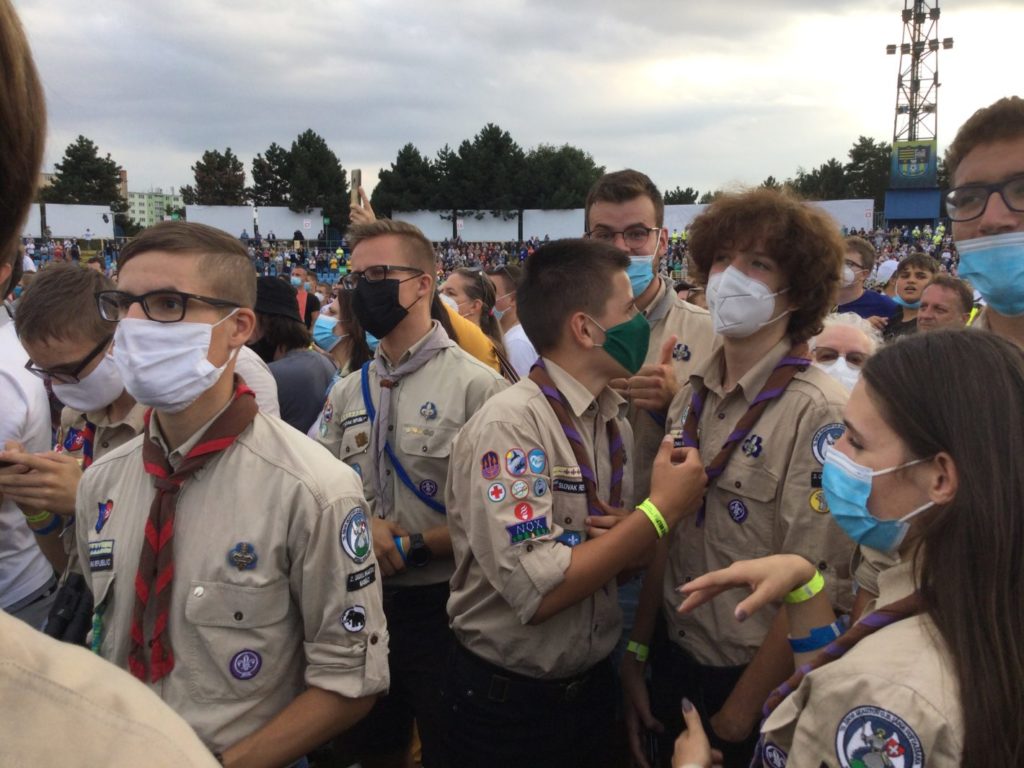
Everything of value costs
That same day, on the Feast of the Exaltation of the Holy Cross, the Pope broadened the horizons of young people, inviting them to set themselves on fire for heroic ideals. "All of you will have in mind great stories that you have read in novels, seen in some unforgettable film, heard in some moving tale. If you think about it, there are always two ingredients in great stories: one is love, the other is adventure, heroism. They always go together. To make life great you need both: love and heroism. Let us look at Jesus, let us look at the Crucified One, there are the two things: love without limits and the courage to give one's life to the end, without mediocrity. [...] Please, let us not make the days of life pass like the episodes of a soap opera.
The languages of the liturgy
St. Cyril and St. Methodius, the apostles not only of the Slovaks, successfully asked Pope Adrian II for permission to celebrate Holy Mass in the Slavic language. The visit of Pope Francis to Slovakia had as a special feature another similar event. Dominik, who was at the Mass with the Pope in Šaštín, comments: "I was struck by the fact that the prayers of the faithful were read in some language unknown to me. After a while I realized that it was Romani, the language of the Gypsies." This is the first time in history that a Pope has introduced this language into the liturgy, which he himself celebrated.
Vojtech, from Dolný Kubín, who also participated in the liturgy in Šaštín, emphasized not only the Romani: "One thing that especially caught my attention was the liturgy, how well it was taken care of. The Mass was in Latin and the readings in Slovak. The hymns were the same: some in Latin, others in Slovak. I thought it was a perfect mix. The choir and the orchestra sounded wonderful. All very dignified, very elevated and very beautiful. I loved it.
History repeats itself
The Pope closed his apostolic visit to Slovakia by praying, as is customary, before the image of Our Lady Salus Populi Romani in Santa Maria Maggiore, in the same church, where the Slavic apostles, St. Cyril and Methodius asked for the approval of the Slavic language for the liturgy.


